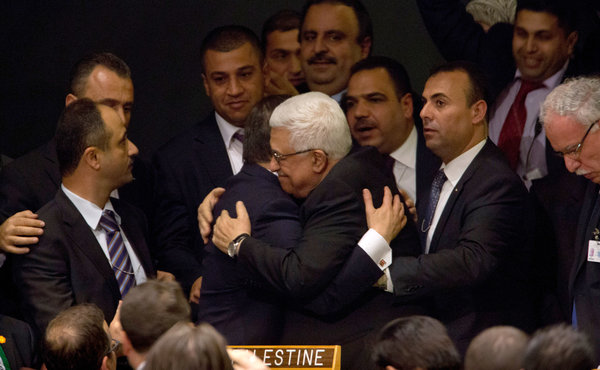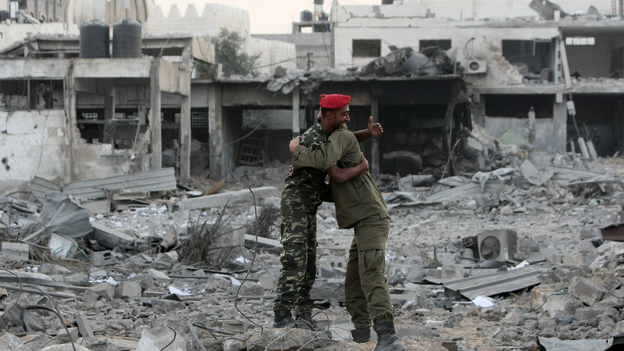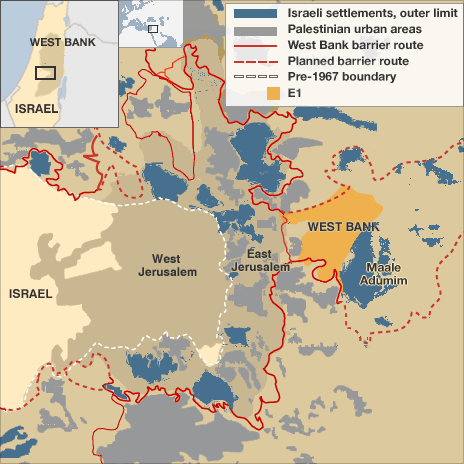
Turkey’s foreign minister congrats Palestinian Authority president, Mahmoud Abbas (center).
On Nov. 29, the UN General Assembly voted on recognizing Palestine as a non-member observer state. Although met with hesitation from a few key countries, Palestinian President Mahmoud Abbas moved forward, stating it was the “last chance to save the two-state solution” with Israel. The U.S. and Israel agreed the resolution would place further obstacles between the Palestinian and Israeli peace process. 138 nations voted in favor of the bid, with 9 voting against and 41 nations abstaining from the vote.
The decision, which many Palestinians have been awaiting after years of occupation and war, comes 65 years to the date since the UN General Assembly voted to divide Palestine into two states. Since 1947, Palestine survived as a state for Arabs, while Israel became a Jewish state. Opposed to the partition plan, Palestinians rejected it and tension grew between the two states.
Palestine was successful in gaining support of key European countries, with France, Italy, Spain, Sweden and Ireland voting in its favor. With 80 embassies, 40 representative offices around the world and 132 countries already recognizing Palestine as a state, there was little to no doubt the resolution would be approved. Hamas‘ leader Khaled Meshaal stated the recognition of Palestine as a state is a “bold strategy that could empower all Palestinians.”

A day after a ceasefire between Israel and Hamas was declared, soldiers stand outside their headquarters in Gaza.
The resolution follows an eight-day conflict between Israel and Gaza’s Islamist leadership, Hamas, which claimed 162 Palestinian lives and five Israelis this month. A ceasefire announced on Nov. 22 ended the violence in hopes of the states negotiating a deal to open “borders of the blockaded Palestinian territory.”
The resulting change from the UN vote is still up in the air, as Palestine remains divided politically between Hamas leadership in the Gaza Strip and the Palestinian Authority governing in the West Bank. Seen as more of a symbolic move by many countries, the upgraded status holds potential for Palestine to increase it’s diplomatic standing with access to UN agencies and the International Criminal Court.

24 hours after the vote, Israel’s government approved the construction of 3,000 new homes in settlements in East Jerusalem and the West Bank. Palestinians oppose the construction plan between Jerusalem and the West Bank because it would prevent future development of a Palestinian state. France, Sweden, and Britain have summoned ambassadors in protest of Israel’s authorization with the UK stating it would “cast doubt” on peace talks.
– Juan Frausto
(Photo blog: New York Times, Mahmud Hams, BBC)
Think people should hear about this?